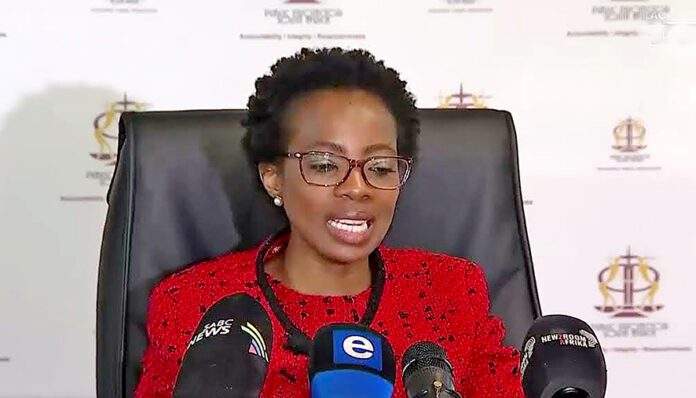Residents in Hammanskraal are not receiving clean water that is suitable for human consumption due to a partially functional and/or dysfunctional state and condition of the Rooiwal waste water treatment works.
The lack of access to clean and potable water poses a danger to the lives of many members of the community, constitutes a continuous gross inconvenience and improper prejudice to the residents.
This is according to findings by public protector, advocate Kholeka Gcaleka, which are contained in a report emanating from an investigation into allegations of undue delay and/or failure by the City of Tshwane metropolitan municipality to supply clean water that is suitable for human consumption.
”Having regard to the evidence and regulatory framework determining the standard that should have been complied with, the allegation that there is undue delay and/or failure by the CoT [City of Tshwane] to supply the residents of Hammanskraal with clean water that is suitable for human consumption is substantiated,” reads the report.
“Rooiwal waste water treatment works lacks adequate and optimum functional capacity in respect of its original design to treat the inflow of wastewater.
“As a result, it has a problem of cleaning organic and solid waste, as well as other water pollutants it receives from its increased catchment areas, such as households and factories.
“According to the CoT, the hydraulic flow or the amount of water coming into the Rooiwal waste water treatment works plant to be treated is approximately 130-million litres per day and the plant experiences an 18% overload.
“The plant was designed to treat only 110-million litres per day. As a result of this hydraulic overload and recurring mechanical breakdowns of machinery as indicated in the evidence, the final treated wastewater discharged from the Rooiwal plant into the Apies River does not comply with the quality standards set, which is a serious non-compliance issue.
“Ultimately, treated wastewater from Rooiwal pollutes the Apies River and Leeuwkraal Dam, which is a source of drinking water to the Hammanskraal and surrounding areas.
“The Temba water treatment works is not mechanically designed to treat raw sewage and sludge, since it is not a wastewater plant, but a water purification plant.”
On her remedial action, Gcaleka said the municipal manager of the City of Tshwane must, within 60 calendar days, develop an implementation plan setting out the measures, including prioritisation of capital funding within its available resources to be undertaken to upgrade and refurbish the Rooiwal waste water treatment works in order to address the ongoing water quality failures at the Temba water treatment works.
She added that Tshwane mayor Cilliers Brink must, within 60 calendar days, table a copy of the investigation report through the speaker of the municipal council for discussion, and receive and consider the implementation plan developed by the municipal manager, setting out steps or measures to be taken by the city to address deficiencies and shortcomings at Rooiwal.
Water and Sanitation Minister Senzo Mchunu was instructed to take appropriate steps or measures within 60 days as he may deem necessary to work collaboratively with Tshwane in addressing the water challenges in Hammanskraal.



